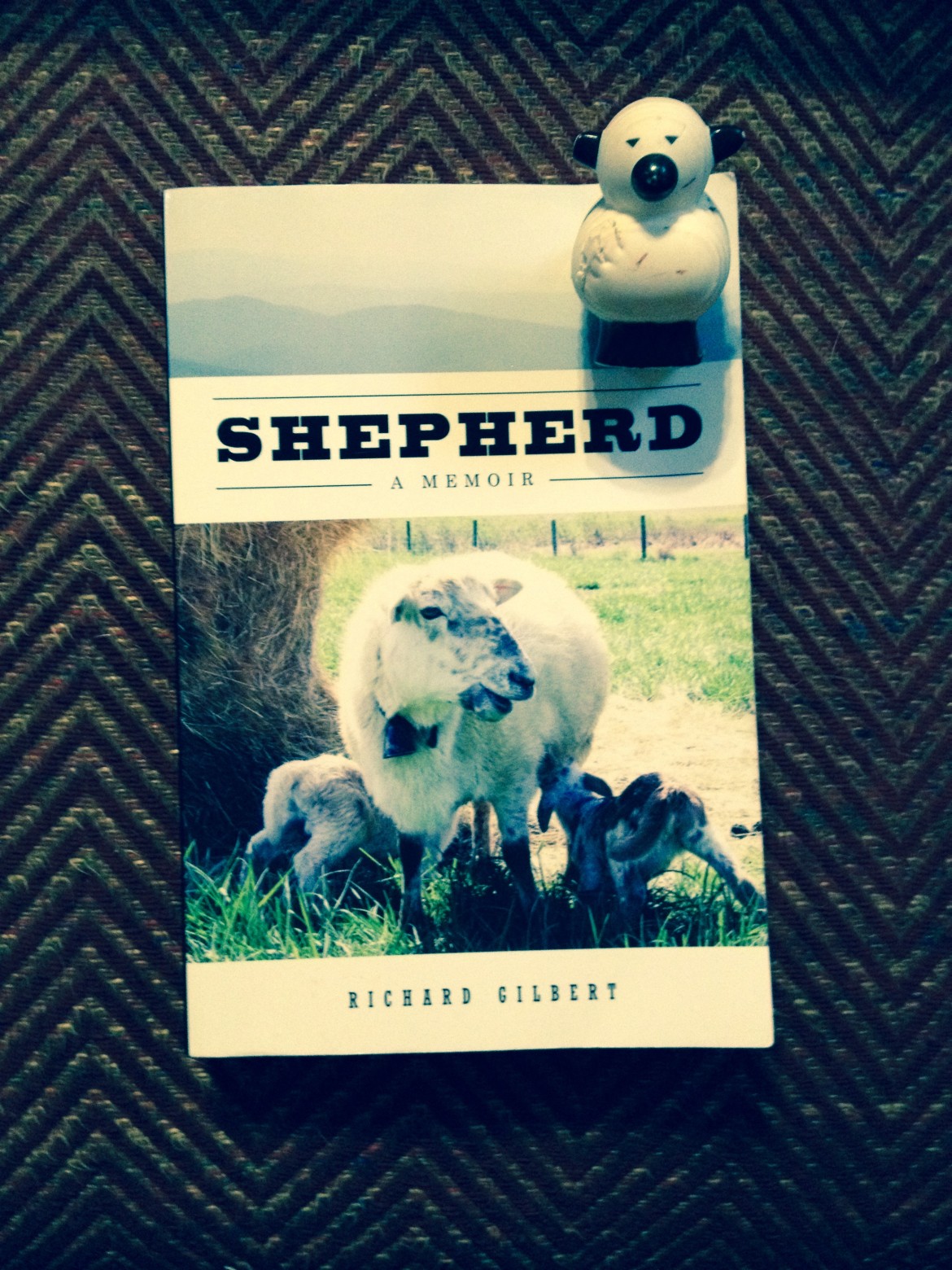
A Review of Shepherd: A Memoir

A Review of Shepherd: A Memoir
By: claycormany in Books
Gilbert, Richard. Shepherd: A Memoir. East Lansing, MI: Michigan State University Press, 2014.
Farming is hard work. I realized that many years ago when I spent a weekend spreading manure, feeding horses, and doing other chores on my aunt and uncle’s farm in Hilliard, Ohio. In his book, Shepherd: A Memoir, Richard Gilbert not only confirms my earlier conclusion but also proves that farming is unpredictable, frustrating, expensive, and sometimes hazardous.
Gilbert’s book provides some penetrating insights to agrarian Appalachian life in general and sheep farming in particular. I had no idea that sheep were so vulnerable to internal parasites that, if not eliminated, can kill them. Neither did I know that some ewes turn out to be bad, neglectful mothers to their lambs. One of my biggest surprises was learning that the lovely-to-look-at Rosa Multiflora is a dangerously invasive plant that can literally overrun a farm. Gilbert went so far as to call it “my worst enemy.” I guess I wasn’t that surprised that shepherds, like nearly everyone else, have put themselves on the Internet, and Gilbert was wise enough to use this channel of communication to his advantage.
Shepherd: A Memoir also demonstrates the power a dream has to motivate an individual. Gilbert’s dream of becoming a farmer took root during his boyhood when he lived on a farm near Leesburg, Georgia. After his father moved the family to Florida, Gilbert realized how much he missed his Leesburg homestead. “My sense of having been torn from that dreamlike world of woods, fields, and coonhounds baying in the swamps almost brought me to tears.” The author’s reading of Louis Bromfield’s Pleasant Valley and Malabar Farm nurtured his dream and showed him “how I might redeem the loss of our farm.”
The opportunity for redemption came when Gilbert and his wife Kathy moved to Athens, Ohio where she became a dean at Ohio University and he accepted a position with the university press. It was Kathy who found the farm that would give her husband the chance to be a shepherd. Lost Valley, which Gilbert renamed Mossy Dell, charmed him from the moment he set eyes on it. “I took in the placid pond and the mossy cabin, and I gaped at the old trees. This was a place out of time.”
Much of the rest of the book details Gilbert’s efforts to fulfill his dream, to make Mossy Dell an enriching place to live and at least a partial economic success. It was no easy task. Weather was a frequent problem. Indeed, not long after he took possession of the farm, a violent thunderstorm felled many of its most scenic trees. Building a healthy, fecund flock also proved daunting, all the more so after Gilbert realized some of his Katahdin sheep were genetically defective. Perhaps Gilbert’s greatest obstacle was his own frail back. After lifting an ailing sheep into a truck, he suffered agonizing neck and back pain. A scan disclosed that he ruptured a disk in his neck. Surgery, a neck brace, and a lengthy recovery followed.
Finally, Gilbert’s book shows the social pressure that comes from being seen as an “outsider.” To be fair, some of Gilbert’s neighbors welcomed him and offered assistance. But others took advantage of him, letting their dogs run loose on his property, selling him equipment that didn’t work, and committing minor acts of theft and vandalism. Among those who supported the novice farmer was Sam, a hard-working farmer-handyman who Gilbert hired to help him with chores and who typically greeted his employer with a cheerful “How’s Richard this morning?”
Gilbert effectively balances his narrative about Appalachian rural life with heartfelt descriptions of off-the-farm adventures he had with his family. He is sensitive to the sacrifices Kathy and his children made so he could pursue his dream. Sometimes this sensitivity leads to twinges of guilt as when his son Tom describes a book he read about a father and son traveling together across England. “The plot was fiction and surely a fantasy of what the writer had desired from his own father. But it pained me to hear Tom’s simple summation: ‘His father had time for him.’ ” Gilbert tried to make up for lost time with his son by entering them in a Pinewood Derby tournament. Another poignant moment arose when Gilbert and Kathy said farewell to their daughter Claire after taking her to Northwestern to begin her freshman year. The author supplements these accounts with recollections of his childhood family and the different dreams – including farming – that drove his own father. Gilbert’s complex, sometimes strained relationship with his father is a theme that reappears throughout his story.
Shepherd A Memoir does have dreary spots, and there are places where lengthy descriptions of the local flora and fauna slow its pace. Nevertheless, Gilbert’s rich, varied vocabulary and smooth writing coupled with touches of self-deprecating humor make his memoir an enjoyable read. Shepherd A Memoir is an informative and sometimes inspiring book that will be especially revealing to readers who are themselves considering a venture into farming. I highly recommend it.
Tags: Appalachia, farm, memoir, outsider, sheep, shepherd

Thanks so much for this perceptive review, Clay! You really see the trees in the forest here, so to speak. Thank you.